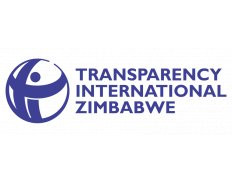
LATE disbursement of funds from Treasury for awarded tenders have been a challenge in guaranteeing procurement in line with the Annual Procurement Plan (APP) and the legislation, procurement practitioners have warned.
This emerged during a capacity strengthening on electronic government procurement (e-GP) system hosted by Transparency International Zimbabwe (TiZ) in Masvingo, Mutare and Harare targeting maternal health sector professionals including procurement entities, audit professionals and users of healthcare goods and services such as matrons and superintendents.
The event aimed to build the capacity of maternal healthcare professionals in procurement planning, bidder evaluation and contract management using the e-GP system.
Dakarayi Matanga, the senior researcher at Transparency International Zimbabwe noted the importance of e-procurement in curbing corruption risks in public procurement.
“The e-GP system presents an opportunity to curb corruption risks in Zimbabwe’s public procurement processes, by reducing human interference in the process through collusion and kickbacks,” he said.
“When corruption dominates the procurement process, scarce resources are diverted away from effective service delivery in areas such as health where it determines the difference between life and death.”
According to sources, the Procurement Regulatory Authority of Zimbabwe (Praz) takes long to approve APPs.
“There is constant back and forth in the approval of APPs which lengthens the procurement process,” they said.
- Laptops deal rile TIZ
- Combating corruption in public procurement
- Zupco on cusp of collapse
- Beitbridge border post ‘dumps’ Zimdollar
Keep Reading
“Praz should decentralise and they should have a guideline for APPs and share with procurement officers to avoid back and forth.”
The sources further highlighted the puzzle of some procurement plans in one procurement entity not being approved for specific issues, which are approved for another procurement entity.
There is also a perception that payments needed from bidders to participate in the e-GP system and in challenging the tender awards are expensive and they hinder competition and accountability in the tender awarding process.
Tapfumaneyi Java, a supply chain and Methodology for Assessing Procurement Systems assessor, highlighted that the cost of bidding is expensive and anti-competitive.
“Bidders are expected to pay US$120 per each category, they are also expected to pay for Special Procurement Oversight Committee review, contract administration fee and security for costs to challenge the award which hinders competition among bidders,” Java said.
He emphasised that the e-GP system is important because it has the capacity to increase transparency and efficiency of government procurement, which represents a large portion of government expenditure.
Java also highlighted the need to train auditors in line with public procurement processes to ensure transparency.
“Praz has no capacity to do audits so it hires auditors who may not be well capacitated in public procurement, which may have a negative impact.”










